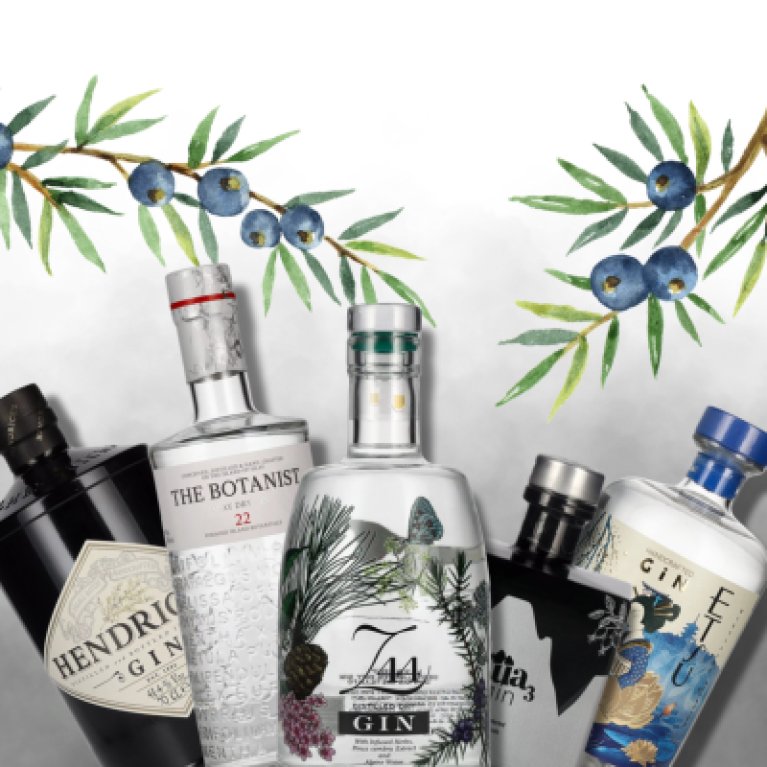Buying gin - many varieties in numerous flavor variations
When buying gin, you will encounter different types of gin, all of which have their own appeal.
London Dry Gin
The best-known variety, London Dry Gin (also London Gin), is strictly regulated and, contrary to its name, does not have to be produced in London but must meet other requirements: It must have a minimum alcohol content of 37.5% by volume, have a vegetable alcohol base and contain only natural ingredients, which are added at the same time. The result is a dry, pure gin that emphasizes juniper - ideal for cocktails such as gin and tonic.
Dry gin / distilled gin
Dry gin or distilled gin offers more freedom in comparison. It may also only contain natural and nature-identical flavors, but the ingredients do not have to be added at the same time. This flexibility leads to a variety of flavor profiles, which is particularly appreciated by connoisseurs who like to experiment when buying gin.
Sloe gin
Sloe gin, on the other hand, is not actually a gin according to EU regulations, but a liqueur, as it contains less than 37.5% vol. and is produced by infusing sloe berries in distilled gin. Its fruity-sweet character makes it a wonderful choice for mixed drinks or pure enjoyment.
New Western Dry Gin
New Western Dry Gin is a modern interpretation of gin in which juniper takes a back seat and other botanicals, such as floral or fruity notes, dominate. This style allows distilleries to be creative and develop unique flavor profiles.
Aged gin
Also known as reserve gin, aged gin is matured in wooden barrels, which gives it additional complexity and a golden color. Barrel ageing brings out notes of vanilla, caramel and spice, similar to whisky.
Compound gin
In the method of compound gin, the botanicals are macerated in neutral alcohol without re-distillation. This is a simple and inexpensive production method, but often results in less complex flavor profiles.
Plymouth Gin
A geographically protected type of gin produced exclusively in Plymouth, England. Plymouth Gin is known for its softer and earthier taste compared to London Dry Gin.
Flavored gin
These gins are enriched with additional flavors such as berries, citrus fruits or spices. They offer a wide range of flavors and are ideal for creative cocktails.
When buying gin, it is worth exploring these different styles to find the gin that best suits your personal taste.

















































































 Login with Amazon
Login with Amazon